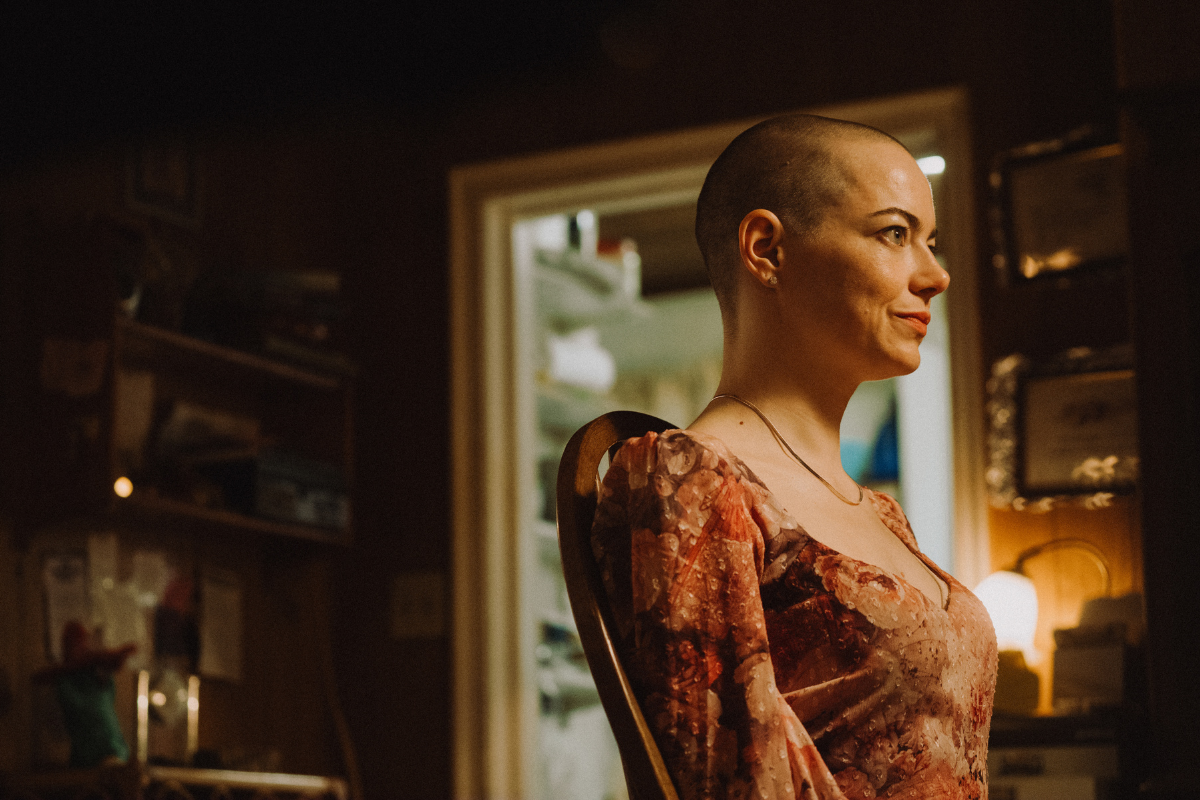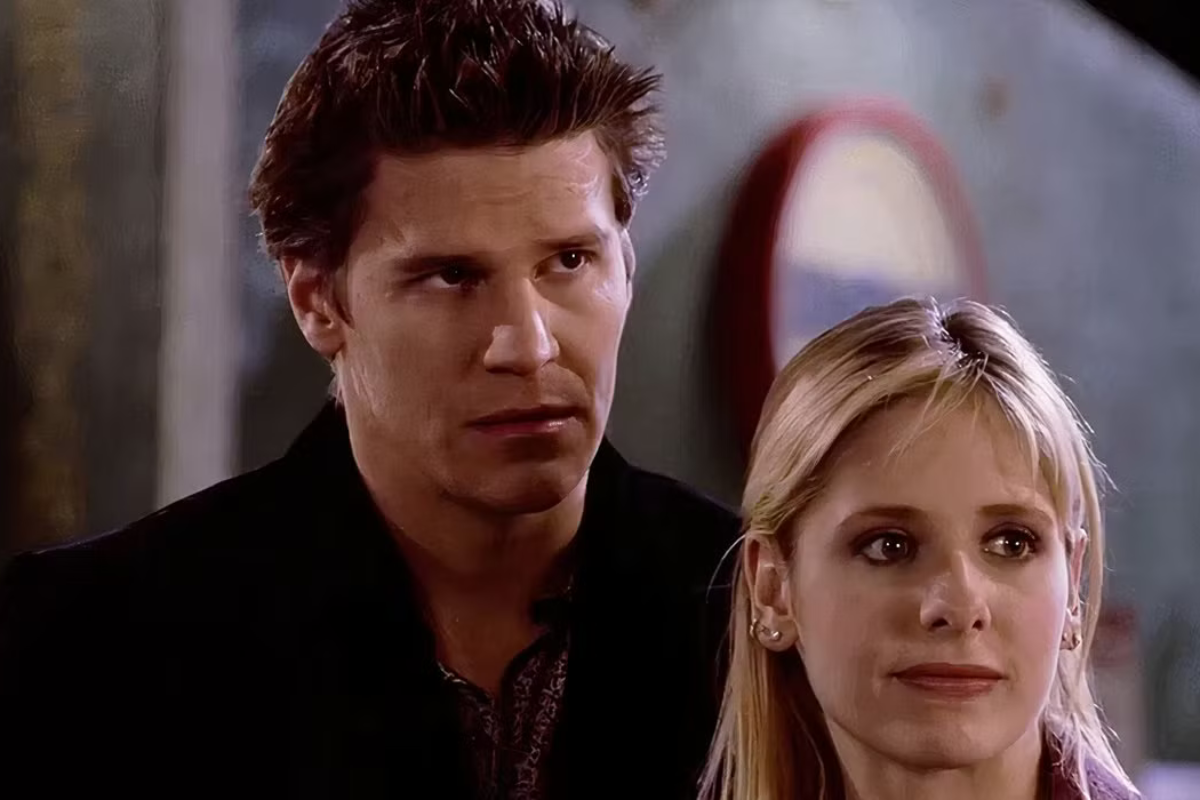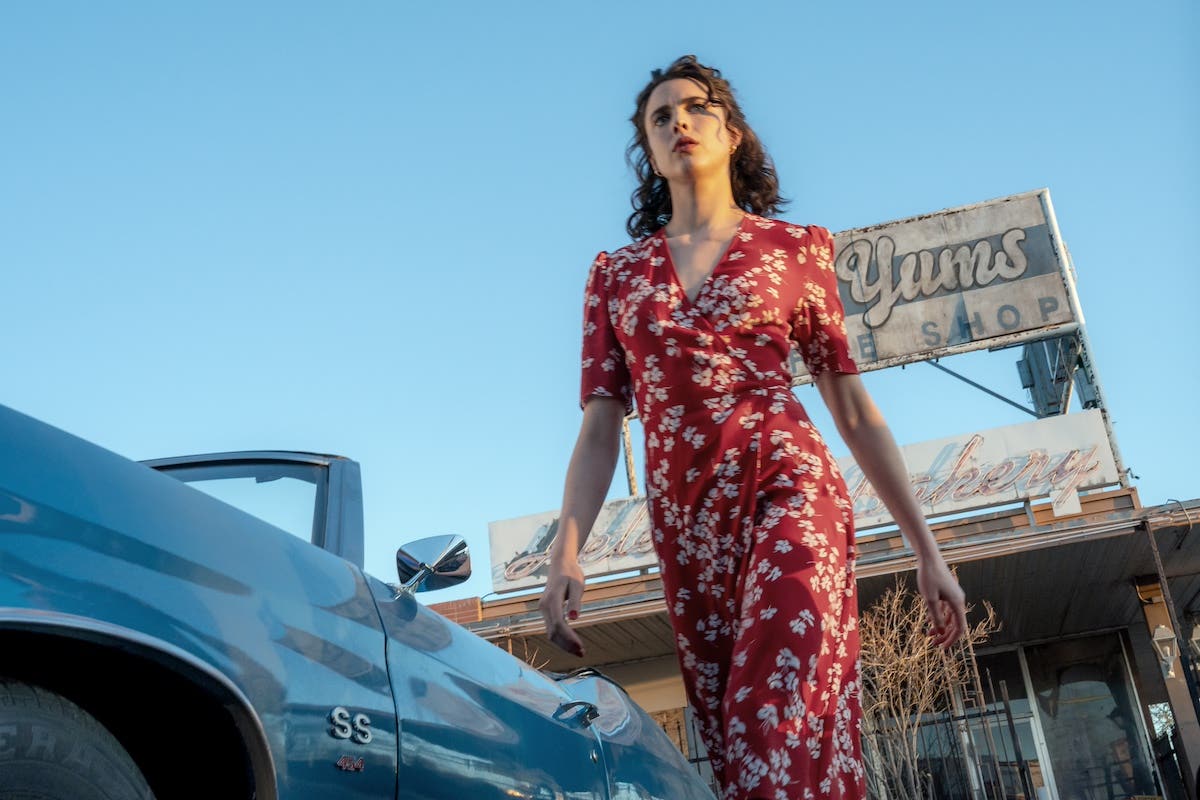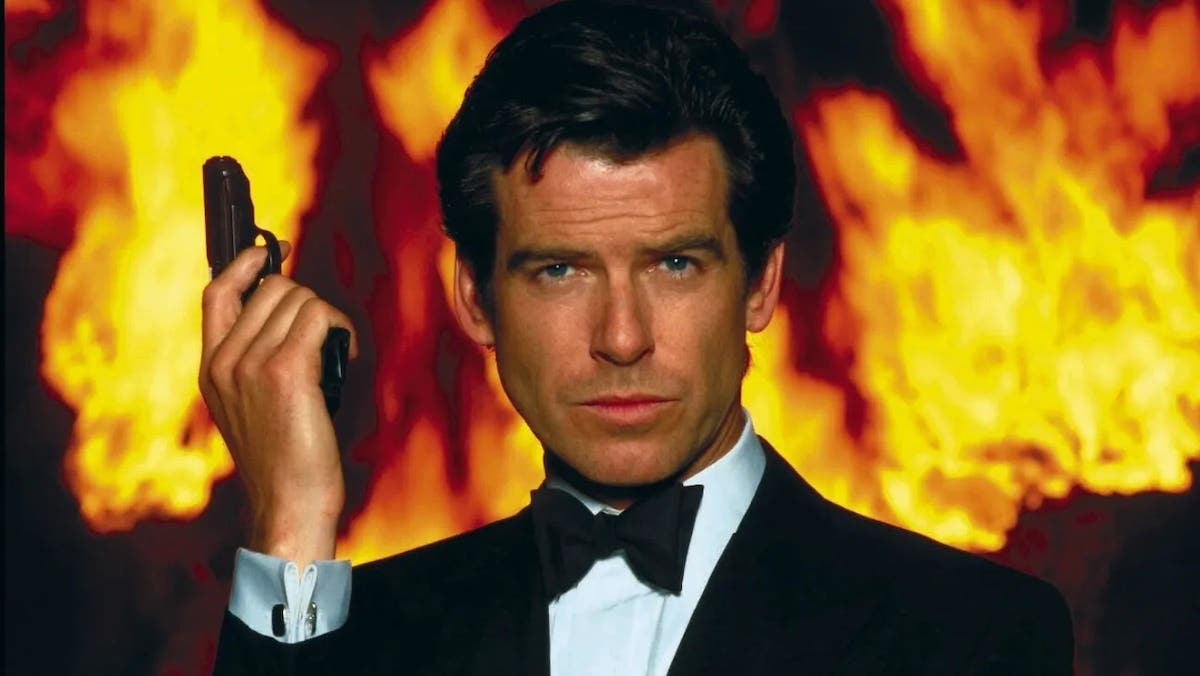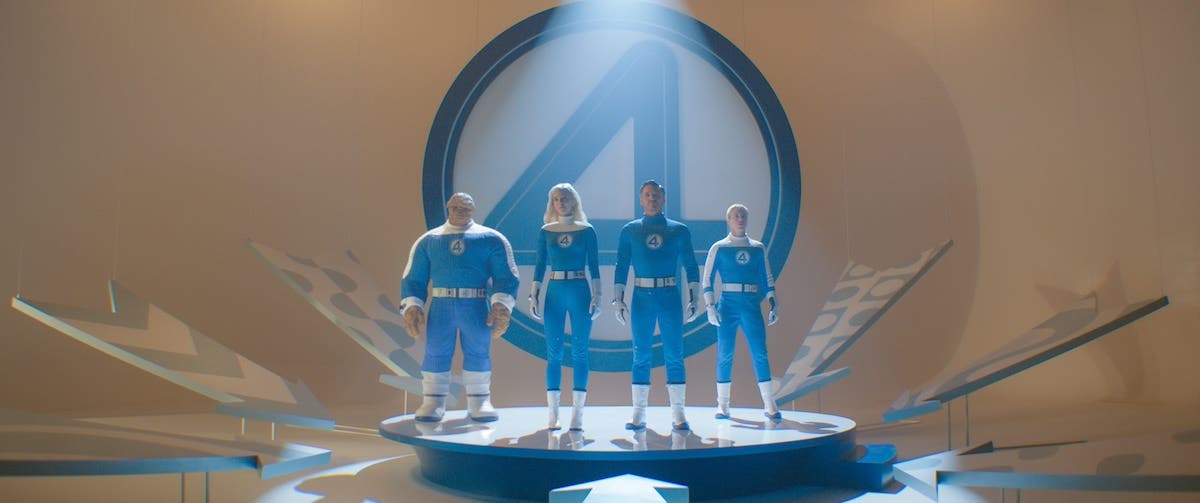Sci-Fi Circuit: Exploring the Problem of Exposition in Sci-Fi
Sci-fi screenwriter Jenna Avery explores the methods of handling exposition and backstory in science fiction screenwriting.
Sci-fi screenwriter Jenna Avery explores the methods of handling exposition and backstory in science fiction screenwriting.
One of the challenges with writing good science fiction is introducing not only the world itself, but any story background needed to set the stage for what's to come. In my recent interview with Amazon Studios-optioned Adam Pachter, he mentioned his pet peeve about screenwriters using voiceover to get away with exposition that might otherwise be delivered through story. On the other hand, Carson Reeves, Scriptshadow blogger and Scriptshadow Secrets author, recommends using some kind of introduction for sci-fi scripts to help avoid overly expository dialogue, such as title cards (like in Star Wars or Blade Runner) or voiceover. His reason for this, as he puts it, is that “science fiction is a memory hog,” and if a writer isn't careful, a large percentage of her script can end up being filled with exposition. Like Pachter, I've never been a fan of much in the way of voiceover in general but I thought it was worth exploring the options to blasting our readers and viewers with tons of exposition. I mean, let's face it, Carson's right about sheer volume of page space taken up by story explanation. So are there efficient ways of bringing the audience up to speed that actually work? What's been done before, and what do we think about them? Are there times the standbys such as title cards, flashbacks, and voiceover work? Is there anything else?
Title Cards
As much of a Star Wars fan as I am, I've never been enamored of the opening title cards. I've seen the movies repeatedly but every time, part way through the title card, I realize I've lost the train of thought and oops, guess what, it's already rolling off the screen. I don't know if it's the stiff prose or the speed or what, but it loses meaning for me pretty quickly. And are they necessary? Perhaps. The most relevant part to me has always been, "A long time ago, in a galaxy far, far away." For me, that's enough to say, "This isn't here and now, different rules apply." The rest just has a "Blah, blah, blah, Ginger" vibe to it for me. I found myself having a similar reaction to the opening scrolling backstory in Blade Runner. On the other hand, I found the opening to 2010: The Year We Make Contact much more compelling. It's not much different: words appear in moving animation across the screen. But the distinction for me is that I have the sense that I'm part of the story as opposed to being informed about it. I believe this is because I am reading the mission analysis of the expedition in 2001: A Space Odyssey, and I'm experiencing it as if it is being written in front of me in real time. I'm not being told. I'm being shown.
Flashbacks
And what about flashbacks? Seems like every time I turn around there's someone telling us (and by "us" I mean newer screenwriters working to break into the industry) to never, never, never use evil, bad, horrible flashbacks. But are they so terrible? Haven't we see them used quite successfully in "Mad Men", "Lost", and even The Butterfly Effect? Perhaps this is where the "only once you're an established, successful screenwriter" rule applies? I find that often I enjoy flashbacks, as a way of getting a sense of what has come before. But perhaps that just the lazy spec writer's method of getting the backstory across?
Voiceover
Which brings me to voiceover. I was recently reminded how much I enjoyed the voiceover in The Croods. Perhaps it was because it was not a voiceover telling the backstory, but one setting the tone at the opening of the movie. "Eep" tells us what it's like in her world as the story begins. It's all about how she feels about it. There's another voiceover sequence at the end, where Eep conveys the message of the movie in a simple way -- to change the rules and follow the light. She essentially highlights her father's character arc. And for me, it worked. Perhaps it only works because it is a family movie? Or perhaps you will disagree with me and say that it does not work, period. But what about voiceover in sci-fi? Where do we see examples of voiceover -- or not -- in the realm of science fiction? One of my favorite examples of voiceover in science fiction was for the movie Serenity, the follow-up to the much beloved and prematurely cancelled TV series, "Firefly". In Serenity, Joss Whedon was faced with a difficult challenge -- satisfying the existing "Firefly" audience while bringing a new audience up to speed. And quickly. He used an intriguing combination of voiceover and illustration to describe the world of Serenity, but then quickly transitioned into the story -- the voiceover was the voice of a teacher, in an outdoor classroom with a younger version of of the primary characters, "River". (There are later quick flashbacks to that scene and location as well -- that show the feelingand tone to deepen our understanding of what's happening.) Personally, I think the voiceover in this case works. It's not "just" voiceover. Again, as with The Croods, it's done as part of the story, part of the history, told in a way that illustrates not only the world, but also just barely enough of the backstory to get us caught up. (And I think that's another key -- to give us just enough of a taste that we're willing to jump in to the new world and explore it with the writer, but not enough to feel bludgeoned over the head with meaningless facts, names, and data.) On the other hand, and I say this as a diehard "Firefly" fan, I didn't love the initial voiceover in "Firefly" that aired in the opening sequences after the pilot, nor do I love it with the newer TV series, "Almost Human". It feels extraneous.
Other Methods
And what about other methods? One of my other favorites is the documentary-style footage shown in District 9. Again, we're given a visceral, feeling-based sense of what's happened, how people feel about it, and the problems in place that bring us to the present day, in a way that we're familiar with as a culture: watching the news. In Avatar, Jake Sulley's video journals provide a unique way for us as the viewers to experience what he's going through. It all feels like part of the story.
Final Thoughts
One of the challenges with using any kind of expository storytelling, in my opinion, is that it feels like it condescends to the audience. As if we are too stupid to figure out what's going on and someone has to explain it to us. My general preference is to demonstrate the backstory through action and dialogue. My favorite example is from the movie Aliens, when Ripley's ship is discovered adrift in space and she is still in cryo-sleep. It doesn't take much in the way of visual illustration, action, and dialogue to quickly understand not only that she's been lost in space for 57 years, but also exactly what that means to her. In the end, it seems to me that taking the pedantic "teaching" route is the core of the problem, rather than there being a problem with a specific methodology. I believe that flashbacks, voiceover, and even animated title cards have their place, when used to immerse the viewer into the story. My personal bias will always be to choose to illustrate as much as possible through action, then through character dialogue. I don't think we need to be so concerned about the intelligence of our viewers to keep up with what we're doing. They are, after all, sci-fi fans.
What's your take?
I'd love to hear your opinion in the comments. Where have you seen exposition through these various methods succeed and fail? Are you vehemently opposed to any and all of these methods? Related Articles:
- The Magic of World Building by Jenna Avery
- Movies with a Message by Jenna Avery
- Screenwriter Adam Pachter on Landing a Deal with Amazon Studios by Jenna Avery
Write Sci-Fi Film & Television Scripts That Sell On-Demand Webinar
Screenwriting Webinar from The Writers Store
DOWNLOAD NOW
At a Glance:
- This live webinar discusses the principles and elements of writing in the genre of science-fiction-fantasy
- Learn the essential elements of the sci-fi genre using examples from classic and current feature films and TV series
- Discover how to develop a commercially viable science-fiction-fantasy story



